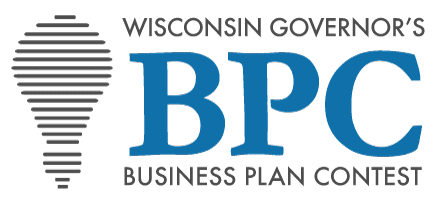02 Apr Finalists in Gov’s Biz Plan Contest Offer Ideas in AG and Food Tech, Health, IT, More
 Twenty-five entries representing broad sectors such as advanced manufacturing, business services, information technology and life sciences will compete in the finalist round of the 2024 Wisconsin Governor’s Business Plan Contest.
Twenty-five entries representing broad sectors such as advanced manufacturing, business services, information technology and life sciences will compete in the finalist round of the 2024 Wisconsin Governor’s Business Plan Contest.
The contestants have emerged after two rounds of judging in the contest organized through the Wisconsin Technology Council and its sponsors and volunteers.
“Young companies such as those advancing in this year’s contest are examples of innovation that cuts across industry sector lines in Wisconsin,” said Gary Frings, chair of the 57-member board of directors for the Tech Council.
Advanced manufacturing plans include use of drones and AI for underground resource exploration; a “mocktail” and mixer to boost mood and improve health; a high-end “white noise” machine for children and adults; rapid lead detection in drinking water; a sensor-based system to more precisely spray fruit citrus and nut trees; and precision spraying of powdered feedstock for 3D printed ports in multiple industries.
Plans tied to business services include a diversity and equity recruiting and retention firm with scalable options; an app to better connect farmers and customers through farmers’ markets; immersive meal kits and family-style meals that provide cultural experience; a plan to provide ice options and sections for use in custom drinks; an online AI platform that connects college students and employers, mostly small businesses; and a blockchain-secured system for inspecting safety in food supply chains.
Information technology plans include democratizing real estate financing by helping investors raise money outside traditional sources; an integrated threat indicator to spot dangerous event and product notifications, safety routes and more; a tool to encourage children to write using pictures from published books; a real-time adaptive traffic control system that uses object detectors and vision technology to run stoplights more efficiently; a Medicare online shopping site for enrollment choices; and a secured, virtual platform to keep speech pathologists and therapists in touch with patients before and after they visit.
Life sciences plans include a mobile app to screen head shapes of infants to identify risk of craniosynostosis; a trajectory guidance system for accurately and quickly placing needle-like devices in the brain; nano-composite carbon polymer wound dressing for diabetic food ulcer treatment; an advanced acoustic pest monitoring device for crops to aid early detection and efficient treatment; modeling of human central nervous system development in cell culture for screening; disease modeling drug discovery; a robotic exercise devise to improve stroke rehabilitation by compelling use of paralyzed limbs; and a platform technology for in-home diagnosis of common diseases.



